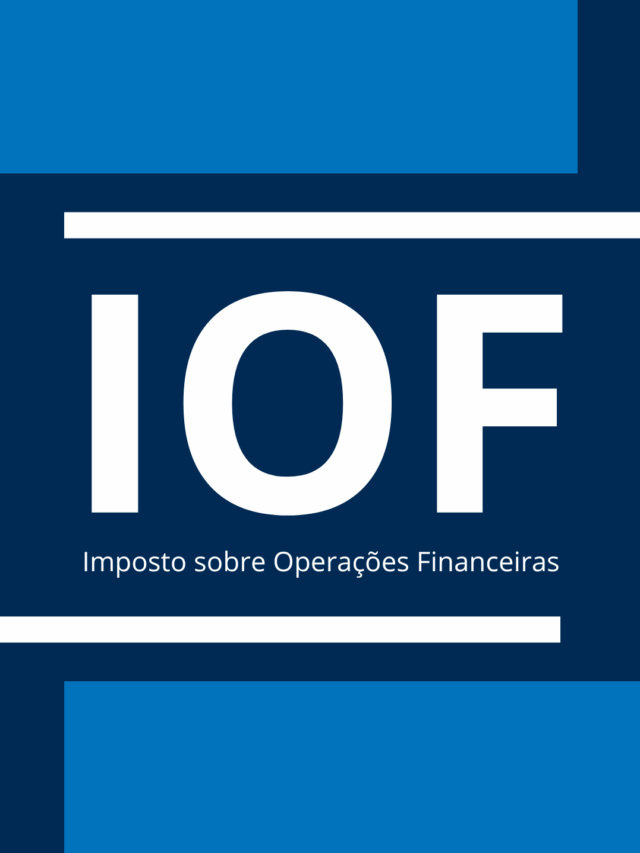Tax compliance is indispensable for holding companies that deal with multiple CNPJs. Without standardized processes, reports become dispersed, accessory obligations are subject to delays and the chance of accounting inconsistencies increases, opening the way for assessments and loss of credibility.
More than complying with regulations, the compliance organizes routine, centralizes information and guarantees transparency in numbers. In this way, business groups and family holding companies achieve efficiency, reduce risks and strengthen governance, even in highly complex tax scenarios.
Want to learn more about how to centralize data from multiple holding company CNPJs effectively? Then read on!
Why is tax compliance so important for holding companies with multiple CNPJs?
One holding generally manages holdings in companies with different natures, different tax regimes and their own accounting processes. This diversity generates high risks when there is no unified fiscal management model.
In this context, compliance is the tool that guarantees the integrity of information and creates standards that support governance.
Without it, critical situations become frequent: inconsistencies in declarations, failures in the cross-checking of data by the Internal Revenue Service, incorrect submission of ancillary obligations and difficulties in consolidating financial information.
All these problems have a direct impact on decision-making and expose the holding company to fines. Now let's find out about the specific risks of abandoning compliance.
Inconsistency in data cross-checking
O Brazilian tax authorities works with highly integrated monitoring systemsThese include the ECF (Tax Accounting Bookkeeping) and EFD-Contributions. They automatically cross-check data sent by different companies and identify discrepancies in seconds.
In a holding company with multiple CNPJsIf each company adopts its own criteria or presents information in unaligned formats, the likelihood of inconsistencies increases exponentially.
This results in notifications, subpoenas and even in-person inspections, which could be avoided with standardized compliance processes.
Incorrect or late delivery of obligations
Each CNPJ of holding is subject to different deadlines, depending on the tax regime and the nature of your operation. Keeping track of these tax calendars manually is an exhausting and error-prone job.
Without compliance, it is common for returns such as DCTF, EFD-Reinf or DIRF to be submitted late or even with errors. This generates automatic fines, which accumulate and compromise the holding company's cash flow.
With a compliance program, deadlines are monitored in integrated systems, which drastically reduces exposure to this type of risk.
Difficulty consolidating figures
Consolidating reports from multiple CNPJs is a natural challenge for any holding company. When each company uses different accounting criteria, the global vision is compromised.
A simple classification errorThese include the recording of financial expenses under "operating expenses" in one CNPJ and correctly in another, already generates distortions in the consolidated result. This impacts both internal control and the credibility of the holding company in external audits.
Tax compliance solves this weakness by imposing standardization rules, allowing data to talk to each other in a uniform way.
Loss of credibility in the market
The impact of a lack of compliance goes beyond the fiscal sphere. Investors, financial institutions and even strategic suppliers assess the financial health and transparency of the holding company before approving loans, partnerships or capital contributions.
When the company presents inconsistent, late or non-standard reports, transmits insecurity to the market. This directly affects credit negotiations, the opening of financing lines and even the ability to attract investors.
Tax compliance, on the other hand, conveys confidence and strengthens the holding company's image as a solid and professional organization.
It is therefore important to say that tax compliance is not just a preventive practice: it represents a competitive advantage by guaranteeing predictability, consistency and security in operations.
How does data centralization contribute to tax efficiency?
Decentralization is one of a holding company's biggest challenges. If each CNPJ uses different platforms or manual records, consolidating information becomes a time-consuming and error-prone task.

Another benefit is secure access to information. Managers, partners and auditors can consult consolidated data easily, without relying on multiple spreadsheets or parallel systems. This guarantees greater transparency and trust in management.
Finally, centralization favors compliance because it creates a single, auditable record. In the event of an inspection, the holding company has consistent reports at its disposal, ready to prove compliance and avoid questioning by the tax authorities.
How does the standardization of accounting reports reduce risks?
When each CNPJ adopts different criteria for registering and submitting information, errors multiply.
Revenue classified differently in each company can compromise consolidation, generating inconsistencies in balance sheets and financial statements. Tax compliance solves this by imposing clear standards.
Let's get to know these benefits!
Consistency in the presentation of results
With unified criteria, the reports follow the same format and ensure comparability between holding companies. This facilitates analysis and avoids misinterpretation.
Clarity to identify irregularities
Standardization makes it possible to quickly identify deviations in performance. When data is presented in a uniform way, it is easier to detect errors in recording or even signs of fraud.
Reducing risks in external inspections
Consistent and organized reports reduce the risk of questioning in external audits. The group now conveys greater credibility to the tax authorities and investors.
Strengthening governance
Standardizing reports also favors corporate governance. Shareholders and managers now have access to comparable information, creating a more transparent and reliable environment.
Better integration between business areas
Standardization doesn't just impact the accounting sector: it also facilitates communication with finance, tax and even the legal department. Consistent reports allow all areas to talk to each other based on the same figures, reducing conflicts and misalignments.
What governance practices strengthen tax compliance in holding companies?
Compliance is not just about systems and reports. It also depends on creating an organizational culture committed to fiscal integrity. In this context, corporate governance plays a decisive role, as it establishes clear rules for management and ensures that everyone involved complies with tax regulations.
The main governance practices that support tax compliance include:
- definition of clear responsibilities between partners and managers;
- creation of internal policies for recording and validating information;
- periodic audits to detect inconsistencies and correct processes;
- transparency in relations with suppliers, investors and tax authorities.
How do recurring internal audits increase tax security?
Even with integrated systems and standardized reports, failures can arise on a daily basis. Manual processes, typing errors or changes in tax legislation require a constant critical eye. This is where recurring internal audits become an essential pillar of tax compliance in holding companies.
By periodically reviewing the accounting and tax records of each CNPJ, the holding company is able to identify inconsistencies before they become major problems. This proactive monitoring reduces the chance of assessments, avoids fines and ensures greater compliance with tax authorities' regulations.
The main benefits of internal audits include
- early detection of errors in ancillary obligations;
- validation of the consistency between accounting and tax data;
- increased reliability of financial statements;
- quick adjustments to processes before external inspections.
By making auditing a recurring process and not just an emergency one, holding companies reinforce the solidity of their governance and demonstrate their responsibility to shareholders, investors and regulatory bodies.
What is the role of specialized accounting in the tax compliance of holding companies?
Dealing with multiple CNPJs requires not only organization, but also in-depth technical knowledge of legislation, tax regimes and accounting consolidation standards. In this context, having specialized accounting makes all the difference.
An experienced partner, such as CLM Controller, offers standardized processes, consistent reports and a team prepared to deal with the complexity of business groups and family holding companies.
Adopt a partnership of this kind reduces risks and increases operational efficiency, since managers no longer spend time reconciling scattered information and start focusing on strategic decisions.
Among the advantages of relying on specialized accounting are the following:
- efficient consolidation of reports from multiple CNPJs;
- continuous monitoring of changes in tax legislation;
- support for internal and external audits;
- implementation of robust corporate governance practices;
- strategic vision to optimize the tax burden within the law.
So it's no exaggeration to say that specialized accounting not only guarantees compliance, but turns tax compliance into a competitive advantage.
When the tax area is seen only as an obligation, the risks remain high and management remains vulnerable.
On the other hand, when it is seen as an essential part of the business strategy, the holding company makes significant gains: more efficiency, greater transparency and credibility in the market.
Tax compliance becomes the foundation of this transformation by bringing together practices such as centralizing data, standardizing reports, recurring audits and corporate governance. In this context, relying on a specialized accounting firm like CLM Controller means guaranteeing consistent processes, reliable reports and a secure path to solid growth.
Talk to CLM Controller now and discover how our specialized team can transform the accounting and tax management of your business group.









